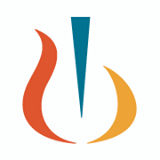NOVARTIS

🇨🇭Switzerland
- Country
- 🇨🇭Switzerland
- Ownership
- Public, Private
- Established
- 1996-01-01
- Employees
- 76K
- Market Cap
- $242.6B
Drug price controls are already killing medical innovation
Cancer death rates have dropped 25% since 2000, with stage 4 now survivable for many. Breakthrough therapies, not just doctors, are credited. The Inflation Reduction Act's price controls threaten to reduce biotech R&D, leading to fewer new drugs and lost life-years. Companies like Novartis and Astellas are already cutting research due to these controls.
'Better imaging' can improve understanding of inflammatory arthritis
New imaging technologies and improved use of existing ones may advance precision medicine in inflammatory arthritis, according to Georg Schett, MD, at the 2024 Congress of Clinical Rheumatology West. Schett highlighted the potential of machine learning and MRI for diagnosing undifferentiated arthritis and differentiating between conditions like psoriatic arthritis and rheumatoid arthritis. He also discussed the use of high-resolution CT for bone mass determination and treatment efficacy checks, emphasizing the need for a 3D approach over conventional X-rays. Schett noted the infancy of functional imaging and introduced new technologies like multispectral optoacoustic tomography (MSOT) for entheseal tissue visualization in PsA and psoriasis patients. He concluded by suggesting that understanding tissue response in inflammation, such as with fibroblast activation protein inhibitors, could guide therapeutic decisions.
Top 10 Breast Cancer Treatment Providers | Provides Best Solutions
Breast cancer treatment market employs various drugs, including chemotherapy, hormone therapies, targeted therapies, and immunotherapy. Market growth is driven by increased incidence, research advancements, early detection awareness, personalized medicine, and new drug classes. The market is projected to reach USD 49.2 billion by 2032, with major companies like Abbott, Merck, GSK, Novartis, Johnson & Johnson, Bristol-Myers Squibb, Sun Pharmaceutical, Pfizer, Teva Pharmaceutical, and AbbVie leading in innovation and geographical expansion.
Pfizer to pull sickle cell drug from market, shut down trials
Pfizer is withdrawing Oxbryta, a sickle cell disease drug, due to safety concerns, leading to an imbalance of deaths and vaso-occlusive crises. The European Medicines Agency recommended suspending its clearance. Pfizer acquired Oxbryta through its purchase of Global Blood Therapeutics in 2022, with Oxbryta generating $92 million in revenue in Q2 2024. Pfizer continues to develop other sickle cell treatments, including inclacumab and osivelotor in Phase 3. Patients currently on Oxbryta should consult their doctors for alternatives.
Pfizer withdraws sickle cell disease drug Oxbryta amid safety concerns
Pfizer withdraws Oxbryta from worldwide markets due to clinical data indicating the drug's risks no longer outweigh its benefits. The decision follows an imbalance in vaso-occlusive crises and fatal events observed in trials. Pfizer will halt clinical trials while reviewing data and advises patients to consult their physicians for alternative treatments.
Mirai Bio launches with plan to help genetic med developers
Mirai Bio, a Flagship Pioneering biotech, aims to facilitate genetic medicine development using AI to overcome drug delivery and manufacturing challenges, offering an open platform for co-creating new drugs.
Donanemab: Conflicts of interest found in FDA committee that approved new Alzheimer's drug
Donanemab, an Alzheimer’s drug by Eli Lilly, faces scrutiny over excess deaths, missing safety data, questionable efficacy, and financial conflicts among FDA advisory panel members. Despite these concerns, the FDA approved the drug in July 2023, raising questions about the approval process and the drug's true benefits and risks.
Global Bispecific Antibody Market Size Bispecific Antibodies
Bispecific antibodies, designed to target two antigens simultaneously, are revolutionizing cancer treatment by enhancing antitumor immune responses and overcoming immune evasion mechanisms. The global market for these antibodies is projected to exceed USD 8 billion by 2023, driven by advancements in antibody engineering and increasing demand for targeted therapies. Major pharmaceutical companies are investing in bispecific antibody research, with strategic collaborations accelerating development. The market is expected to grow further due to expanding therapeutic applications and a shift towards personalized medicine.
The West's wake-up call to China's biotech dominance
The U.S. House passed the BIOSECURE Act, banning U.S. biopharma companies from working with Chinese contractors due to national security concerns. This reflects shifting global biotech dominance, with immediate supply chain challenges and long-term implications. China’s biotech leadership, built over decades, contrasts with the West’s slow prioritization. The Act may encourage the U.S. and Europe to bring resources home, but short-term consequences for manufacturing, clinical trials, and IP are significant. A comprehensive “BIOBUILD” strategy is needed to maintain biotech leadership.
CellBion eyes global expansion in radiopharmaceuticals after Kosdaq IPO
CellBion, a Korean developer of radioisotope-based cancer therapeutics, plans global growth post-Kosdaq listing, focusing on new radiopharmaceutical treatments for prostate cancer and international technology exports. Its Lu-177-DGUL targets metastatic castration-resistant prostate cancer (mCRPC) with phase 2 trials showing superior efficacy and safety compared to Novartis' Pluvicto. The company aims to complete phase 2 trials in H1 2024, pursue conditional approval for early launch, and expand globally through partnerships and patent registrations.
© Copyright 2024. All Rights Reserved by MedPath
